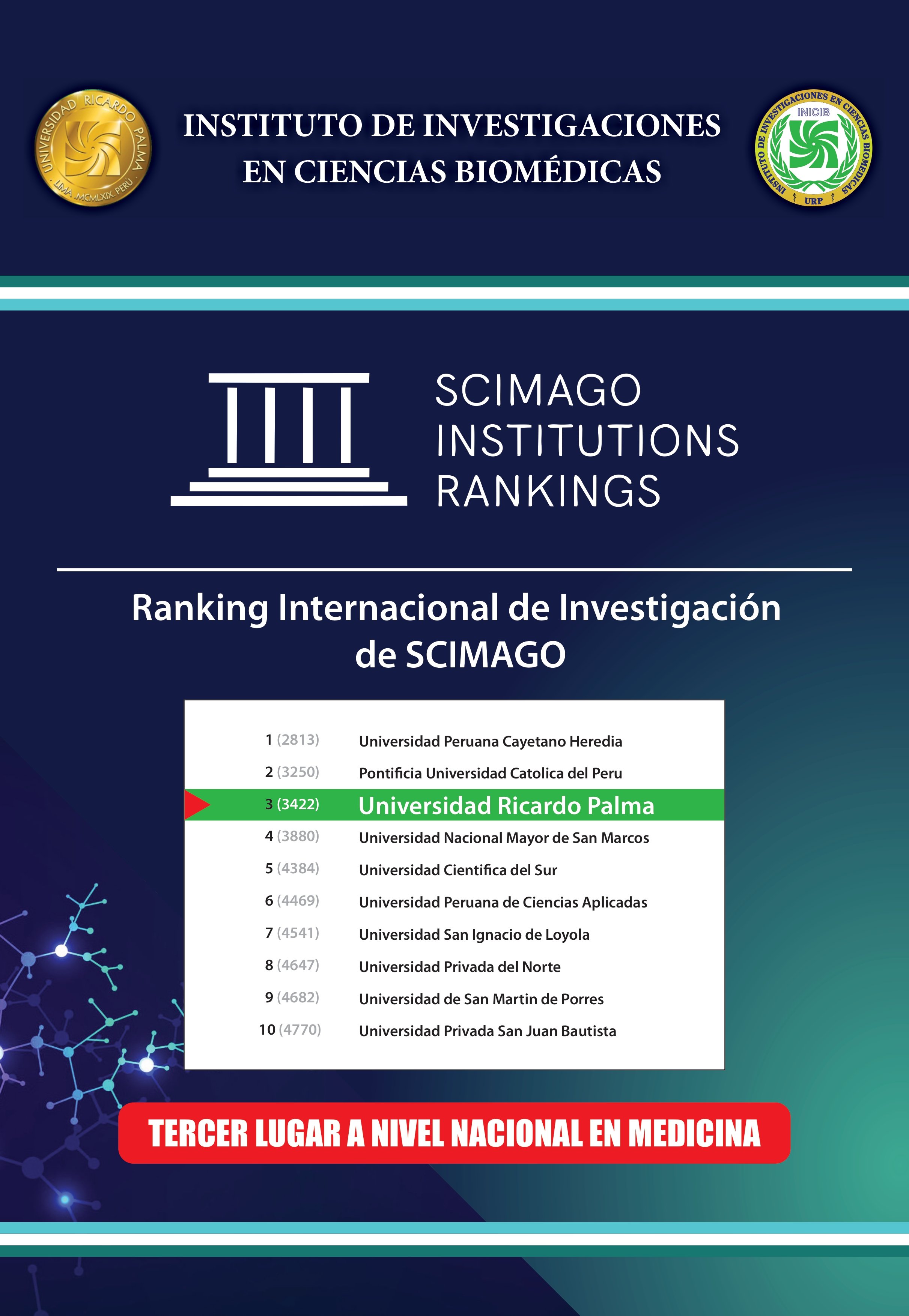Ácido úrico y enfermedades neurodegenerativas: encontrando un predictor del deterioro cognitivo
Uric acid and neurodegenerative diseases: finding a predictor of cognitive decline | 尿酸与神经退行性疾病:寻找认知衰退的预测指标
DOI:
https://doi.org/10.25176/RFMH.v24i3.6639Resumen
El ácido úrico, potente antioxidante endogeno, ha sido recientemente investigado por su posible relación con enfermedades neurodegenerativas. En esta carta, se propone que el ácido úrico podría servir como un marcador predictivo del deterioro cognitivo en condiciones neurodegenerativas. Se revisan estudios recientes que sugieren una correlación entre niveles elevados de ácido úrico y un menor riesgo de deterioro cognitivo, abogando por la necesidad de más investigaciones para confirmar estos hallazgos. Además, se discuten las implicaciones clínicas de utilizar el ácido úrico como un biomarcador potencial en la práctica neurológica.
Descargas
Citas
Alzheimer's Disease International. World Alzheimer Report 2019: Attitudes to
Dementia. A global Survey. https://doi.org/10.1002/alz.038255
Dorsey ER, Constantinescu R, Thompson JP, Biglan KM, Holloway RG, Kieburtz
K, et al. Projected number of people with Parkinson disease in the most populous
nations, 2005 through 2030. Neurology. 2007;68(5):384-6.
https://doi.org/10.1212/01.wnl.0000247740.47667.03
Kiernan MC, Vucic S, Cheah BC, Turner MR, Eisen A, Hardiman O, Burrell JR,
Zoing MC. Amyotrophic lateral sclerosis. Lancet. 2011 Mar 12;377(9769):942-55.
doi: 10.1016/S0140-6736(10)61156-7. Epub 2011 Feb 4. PMID: 21296405.
Bowman GL, Shannon J, Frei B, Kaye JA, Quinn JF. El ácido úrico como
antioxidante del SNC. J Alzheimers Dis. 2010; 19(4):1331-6. doi: 10.3233/JAD-
-1330. PMID: 20061611; PMCID: PMC2859185.
Boccardi V, ReGAl 2.0 Study Group:, Carino S, Marinelli E, Lapenna M, Caironi
G, et al. Uric acid and late-onset Alzheimer’s disease: results from the ReGAl 2.0
project. Aging Clin Exp Res [Internet]. 2021;33(2):361–6. Disponible en:
http://dx.doi.org/10.1007/s40520-020-01541-z
Lee Y-G, Park M, Jeong SH, Kang SW, Baik K, Jung JH, et al. Effects of baseline
serum uric acid and apolipoprotein E4 on longitudinal cognition and cerebral
metabolism. Neurobiol Aging [Internet]. 2021 [citado el 15 de abril de
;106:223–31. Disponible en: https://pubmed.ncbi.nlm.nih.gov/34311431/
Shi X, Zheng J, Ma J, Wang Z, Sun W, Li M, et al. Low serum uric acid levels are
associated with the nonmotor symptoms and brain gray matter volume in
Parkinson’s disease. Neurol Sci [Internet]. 2022 [citado el 8 de abril de
;43(3):1747–54. Disponible en: https://pubmed.ncbi.nlm.nih.gov/34405296/
Aerqin Q, Jia S-S, Shen X-N, Li Q, Chen K-L, Ou Y-N, et al. Serum uric acid
levels in neurodegenerative disorders: A cross-sectional study. J Alzheimers Dis
[Internet]. 2022 [citado el 8 de abril de 2024];90(2):761–73. Disponible en:
https://pubmed.ncbi.nlm.nih.gov/36189590/
Iazzolino B, Grassano M, Moglia C, Canosa A, Manera U, Vasta R, et al. High
serum uric acid levels are protective against cognitive impairment in amyotrophic
lateral sclerosis. J Neurol [Internet]. 2024 [citado el 8 de abril de
;271(2):955–61. Disponible en: https://pubmed.ncbi.nlm.nih.gov/37880536/

Descargas
Publicado
Cómo citar
Número
Sección
Licencia
Derechos de autor 2024 Revista de la Facultad de Medicina Humana

Esta obra está bajo una licencia internacional Creative Commons Atribución 4.0.




































